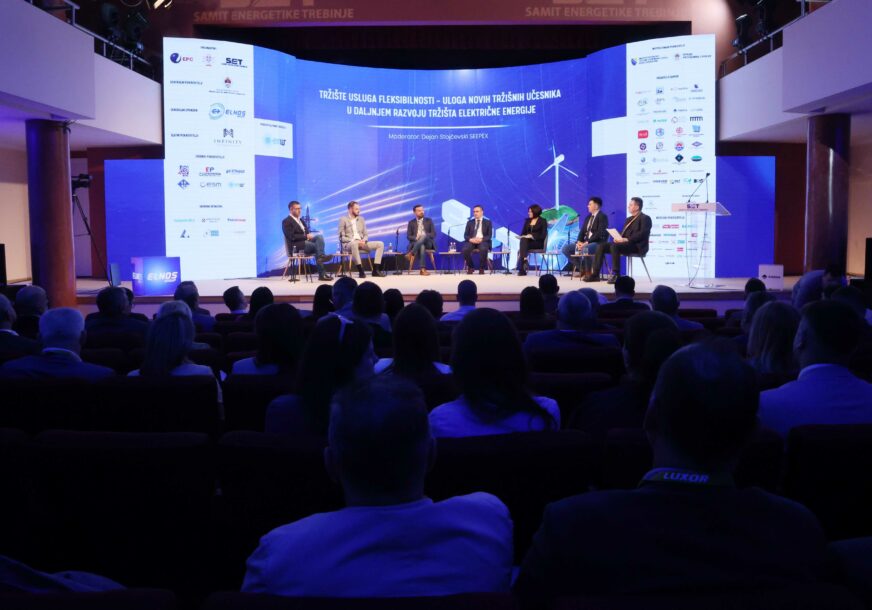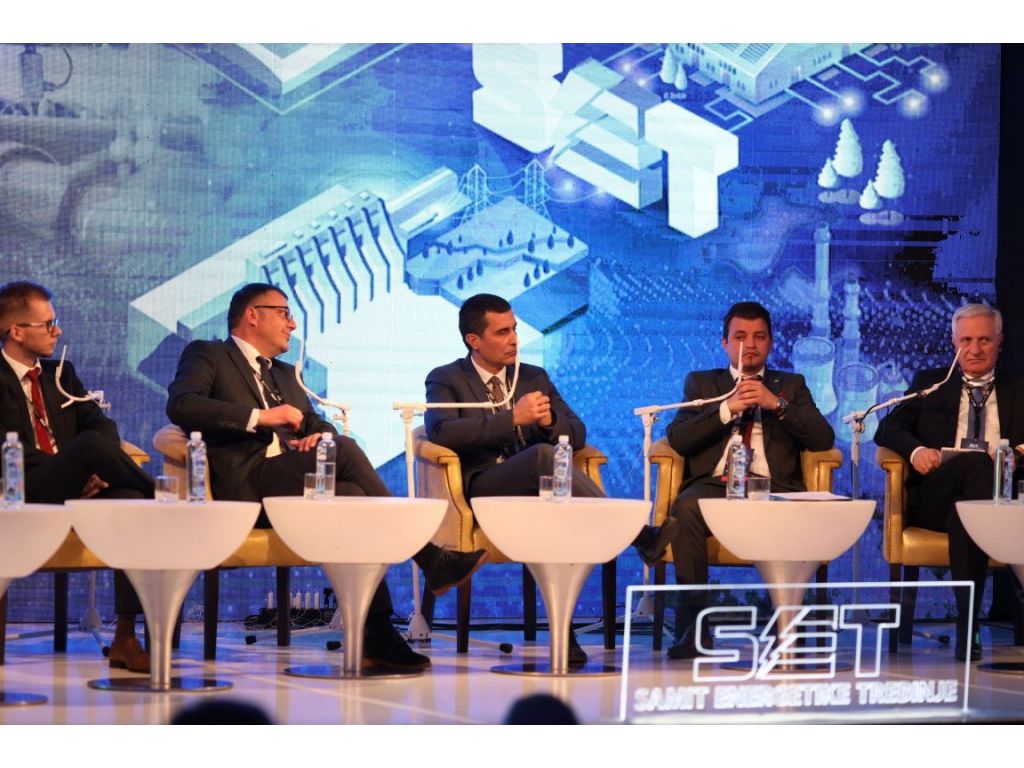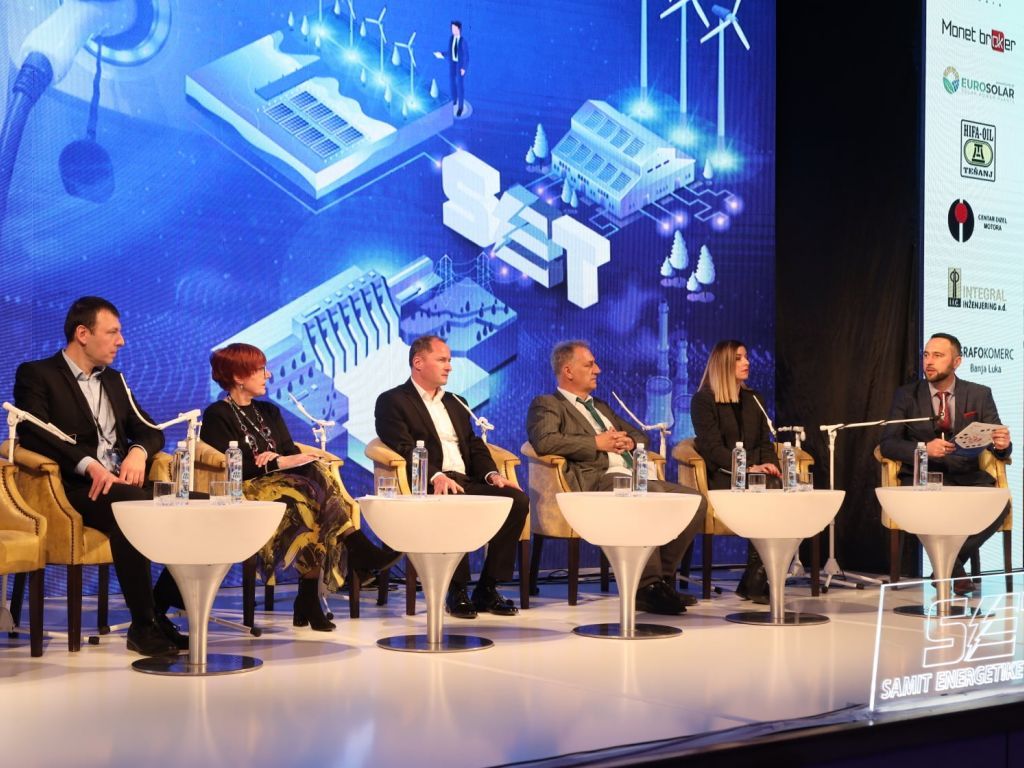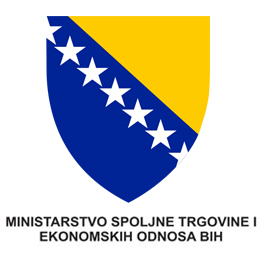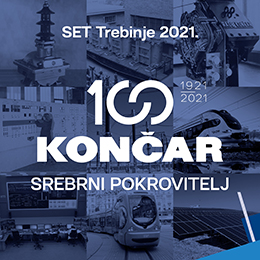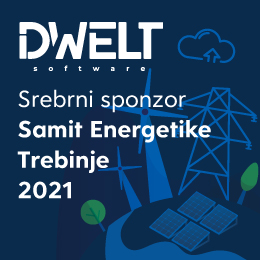How to Handle Energy Challenges – Moderators of 2022 Trebinje Energy Summit Announce Interesting Discussions
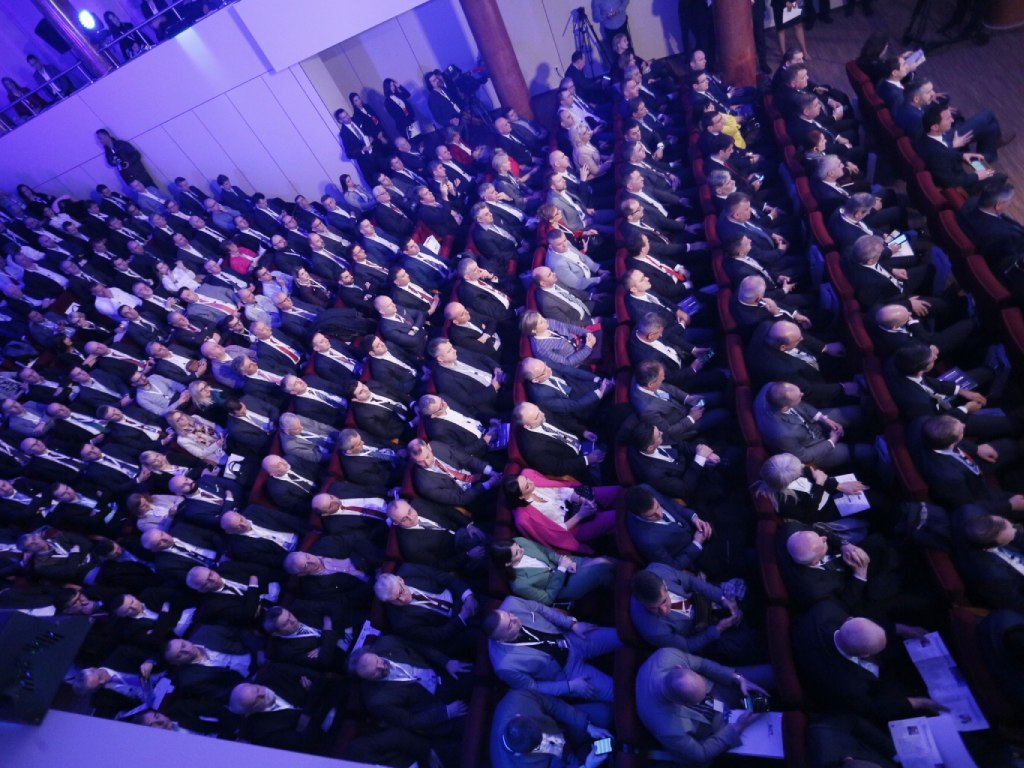
As they pointed out for eKapija, their panels will focus on energy efficiency, development of infrastructure for electrical mobility, the 4D matrix in energy (decarbonization, decentralization, digitization and democratization), consequences of taxation of CO2 emissions and regulations in the field of mandatory oil and oil product reserves.
Nihad Harbas of the Sarajevo-based company nLogic says that the directions of development of energy in the region in the upcoming period are based on increasing energy efficiency and use of renewable energy sources, as well as natural gas as a transit energy source.
– We are witnesses to the negative impact of our existing energy capacities and an apprehension about the security of supply with energy and employment/loss of jobs. If the subsidizing of fossil fuel stopped, it could lead to an increase in the use of solar energy and wind energy, as well as biomass, and to an energy repair of facilities. It is assumed that the prices of energy will keep on growing, so, related to that, the preparation of ESCO and obligation schemes could prevent the increase of energy costs – explains Nihad Harbas, who will moderate the panel “Energy Efficiency – Energy Service Market in the Region (ESCO Model, Energy Efficiency Obligation Schemes)”.
He says that, at the panel, he will present the current state of the ESCO model through an analysis of the obstacles that need to be regulated to the end of optimizing energy system, thereby developing the market of energy systems in the region.
– We will exchange opinions about the degree of development, growth and benefits that the implementation of ESCO model in the field of energy efficiency entails, drawing a parallel with the ESCO market in the EU. An inevitable topic will be the presentation of obligation schemes, that is, regulatory mechanisms which support the carrying out of energy efficiency measures, that is, ensuring financial mechanisms for this field. Representatives of financial institutions in charge of EE and ESCO mechanisms in Bosnia and Herzegovina, regional experts with considerable experience in this field, international organizations which support EE and ESCO, academic community, as well as legal experts for ESCO agreement models, are all attending.
It is believed that the summit is of great importance for the region, because it covers important and current topics, especially when it comes to the energy price trends in the world and EU markets, as well as the question of supply security.
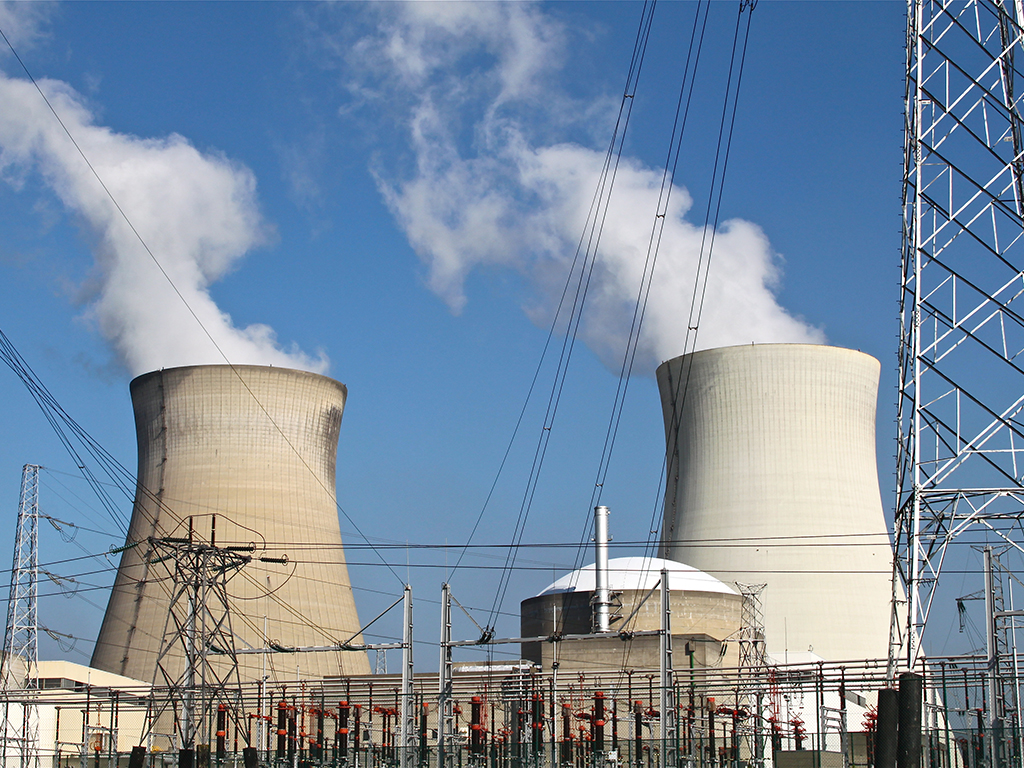
– It is important to note that the upcoming implementation of the ETS mechanisms and CBAM in the countries of the region will increase the importance of energy efficiency and the use of green energy. New mechanisms such as ESCO and obligation schemes could provide an important answer to keeping the costs at the previous or lower level. The summit will contribute to an exchange of experiences and best practice examples and enable the networking of energy actors of the region – pointed out Harbas.
Representatives of the competent ministries and power companies from BiH, Serbia and Montenegro will join professor Dr Mirza Kusljugic of the Faculty of Electrical Engineering in Tuzla, to discuss CO2 emission taxation through the Emission Trading Scheme (ETS) and/or implementation of the Carbon Border Adjustment Mechanism (CBAM) for the electrical energy that is exported to the EU.
– We will also discuss the topic of planning the decarbonization of the production of electrical energy, that is, defining the date when the use of coal for the production of electrical energy stops, and in the context of preparing an integrated energy and climate plan for BiH.
Kusljugic expects the year 2022 in the electrical energy sector to be marked by: high prices of electrical energy at the reference market HUPX, problems with thermal power plants’ technical preparedness, challenges in implementing the LCPD/IED directive, that is, delays in realization of National Emission Reduction Plans (NERPs) and considerable investments in photovoltaic power plants for production for own needs (in the prosumer category), especially in small and medium enterprises.
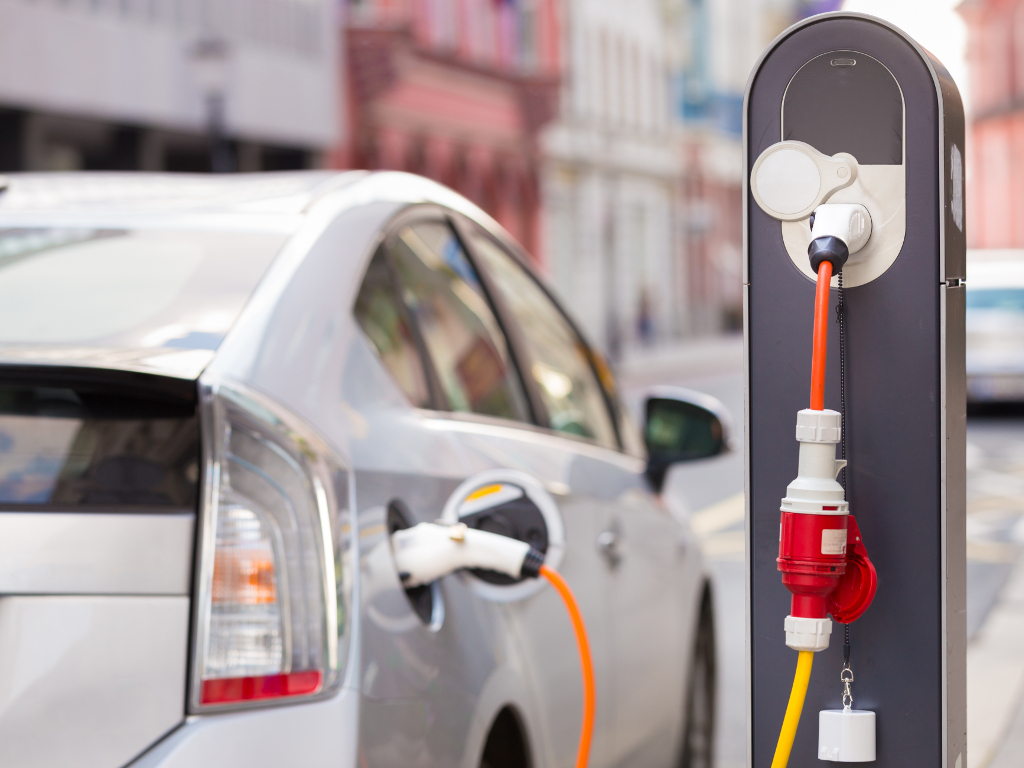
– The currently pressing issue of the prices of energy sources is expected to remain present, with a need for new investments in the existing production facilities and construction of new capacities based on renewable energy sources, digitization of the energy sector, primarily by establishing the concept of smart distribution networks with an integration of distributed sources of energy and a considerable increase in electrical mobility in everyday life and in carrying out business activities – Dumnic points out.
He says that, at the panel “Development of Electrical Mobility Infrastructure”, there will be talk of all the current topics in the domain of development and availability of the technology of electrical and hybrid vehicles, as well as the accompanying infrastructure.
– Electric vehicles have reached a turning point when it comes to the number of units produced, but the technology is facing several significant obstacles to achieving a considerably larger percentage of these vehicles in the market. In order to achieve the goal toward the full electrification of transport, technological-economic challenges need to be overcome, primarily regarding the price, the reach of the vehicles and the up-to-dateness of the power drive. Limitations as to the availability of electrical energy infrastructure, the impact of fast charging on the life cycle of batteries and development of the charger technology are also important challenges that will be discussed at this panel – Dumnic told us.
The key trends in energy in the Western Balkans can be followed through the so-called 4D matrix, which includes decarbonization, decentralization, digitization and democratization, believes Goran Radosavljevic, the director of the FEFA Institute in Belgrade and a professor at the FEFA University.
– Our goal is to analyze each of these individual elements of the 4D matrix and try to give an answer to the question of what kinds of trends await us in the energy sector in the future. The discussion aims, among other things, to provide answers to the following questions: what are the challenges and consequences of 4D for the energy sector, what are the advantages and flaws of energy transition, and what about the costs and the benefits, to what extent is the energy sector ready for 4D at the moment in terms of technology and expertise and what is the state’s role in energy transition.
The energy sector, Radosavljevic says, is currently in a transition process, which entails not just a change in the sources of energy, but the manner of use of energy as well.
– Each transition is at the same time a challenge and an opportunity. It is up to us to use that opportunity. I therefore believe that expert discussions and exchange of knowledge in this field are of crucial importance for a successful transition. That is why this summit is coming at the right moment for the sector and the region. As the announcement of the program says, the Summit will bring together heads of companies, innovators and the academic community with the aim of sharing ideas and suggestions for a sustainable future. As digitization is one of the processes that is woven into this transition, I expect the summit to also attract companies which are not primarily focused on the energy sector, but which have specific knowledge which can be useful in this sector as well. Of course, I also expect a lot from getting to know new people and creating a network of future partners.
The final, tenth, panel will be moderated by Milovan Bajic, the director of Krajinapetrol. They will try to find an answer to the question of what has been done so far in Republika Srpska and FBiH when it comes to the legal regulations regarding the forming of mandatory oil and oil product reserves.
– Who procures, keeps and renews the reserves and how; how oil and oil product reserves are financed; where are the storage capacities and other infrastructure that enable the realization of this big project; what are the experiences from the neighboring countries, primarily Croatia as an EU state and Serbia as a country in the EU accession process; what is the relation of the Energy Community (of whom BiH is a member) and the EU (towards which BiH is striving) toward the fulfillment of the obligations of BiH when it comes to oil and oil product reserves and how to harmonize the activities of the competent entity institutions in order for BiH to be able to form and maintain the necessary reserves of oil and oil products – these are all question about which we want to hear opinions and facts.
The panel is expected to be attended by representatives of the ministries of energy of Republika Srpska and the Federation of Bosnia and Herzegovina, representatives of large companies (Optima, Hifa Oil, Holdina, NIS), representatives of Terminali FBiH and the Croatian Hydrocarbon Agency.
– The agenda at the upcoming SET envisages truly numerous and interesting topics, so I expect quality conclusions to be made at the end and to get an overview of the state of the energy sector of the region. It would also be nice to make a quality analysis of what has been done so far and what remains to be done regarding the decarbonization of the energy sector, infrastructure development, market development and regulation and increased investments in RES – Bajic concluded.
Let us remind that the 2022 Trebinje Energy Summit is held between March 16 and 18, organized by Elektroprivreda RS, the City of Trebinje and the company SET.
The eKapija portal is the media sponsor of the Summit. You can read about the participants and the topics of the Summit HERE.
Teodora Brnjos
© 2020 All rights reserved | SET 2021





